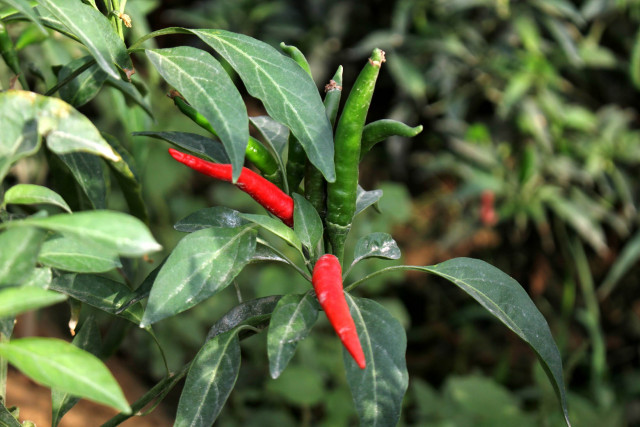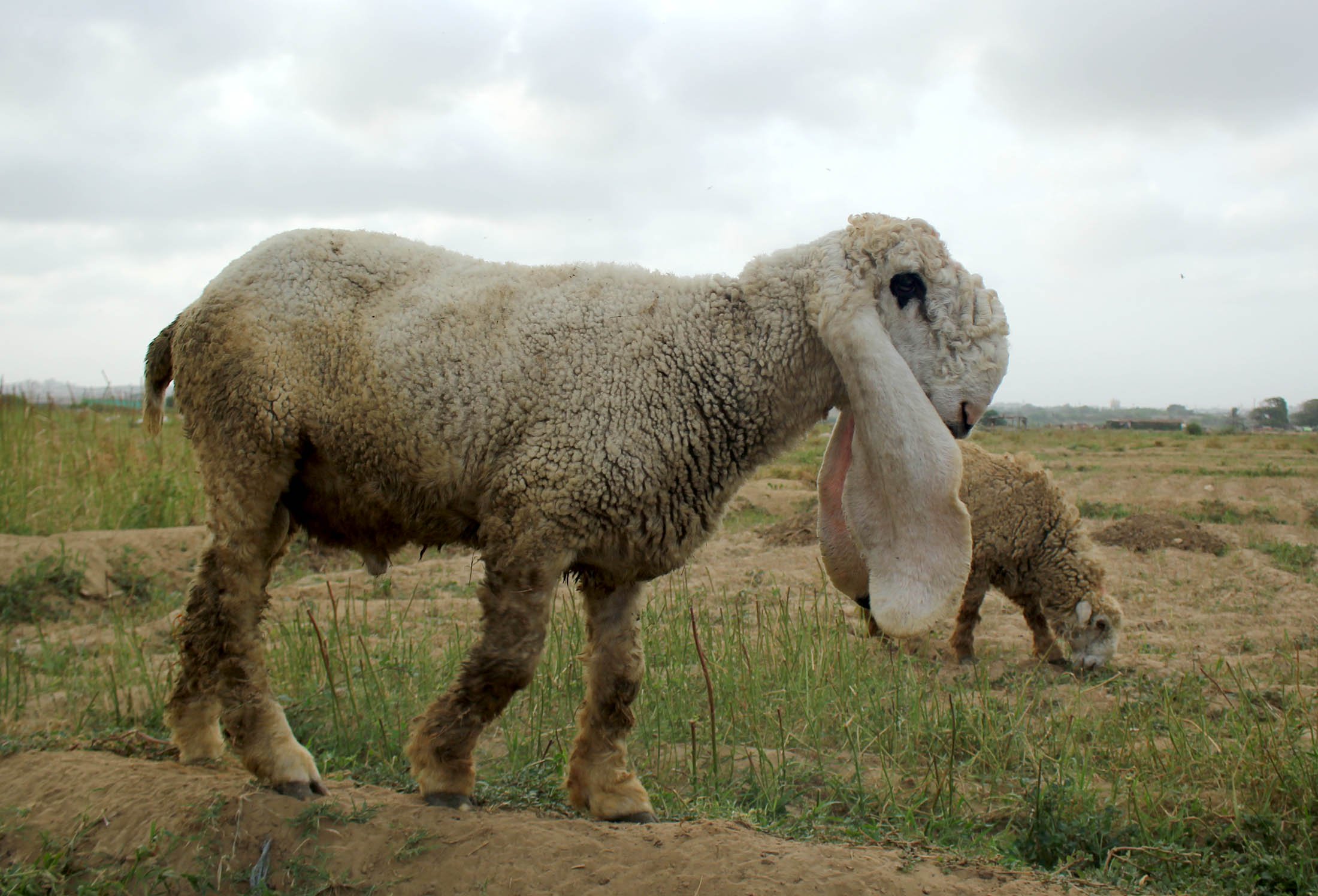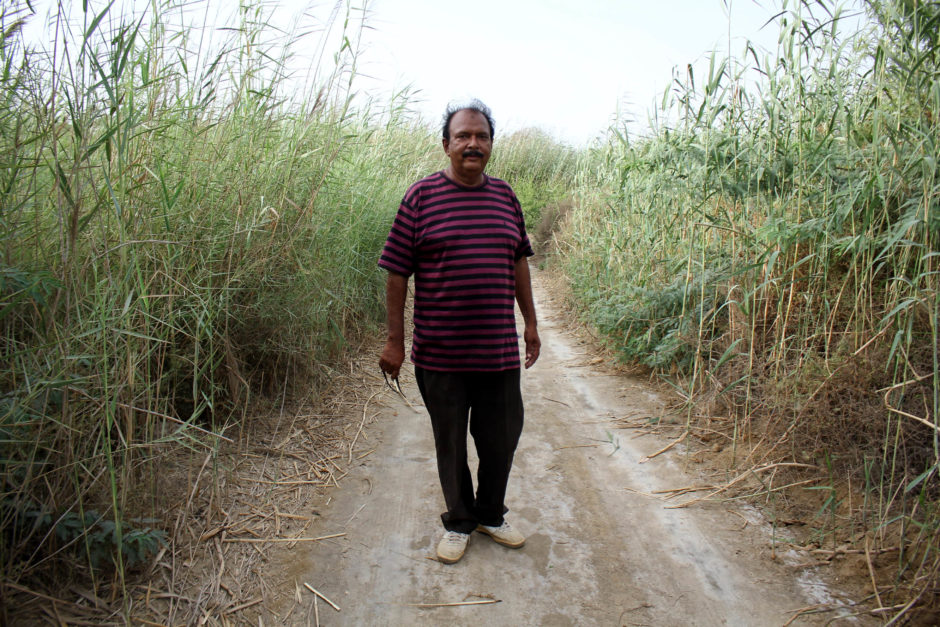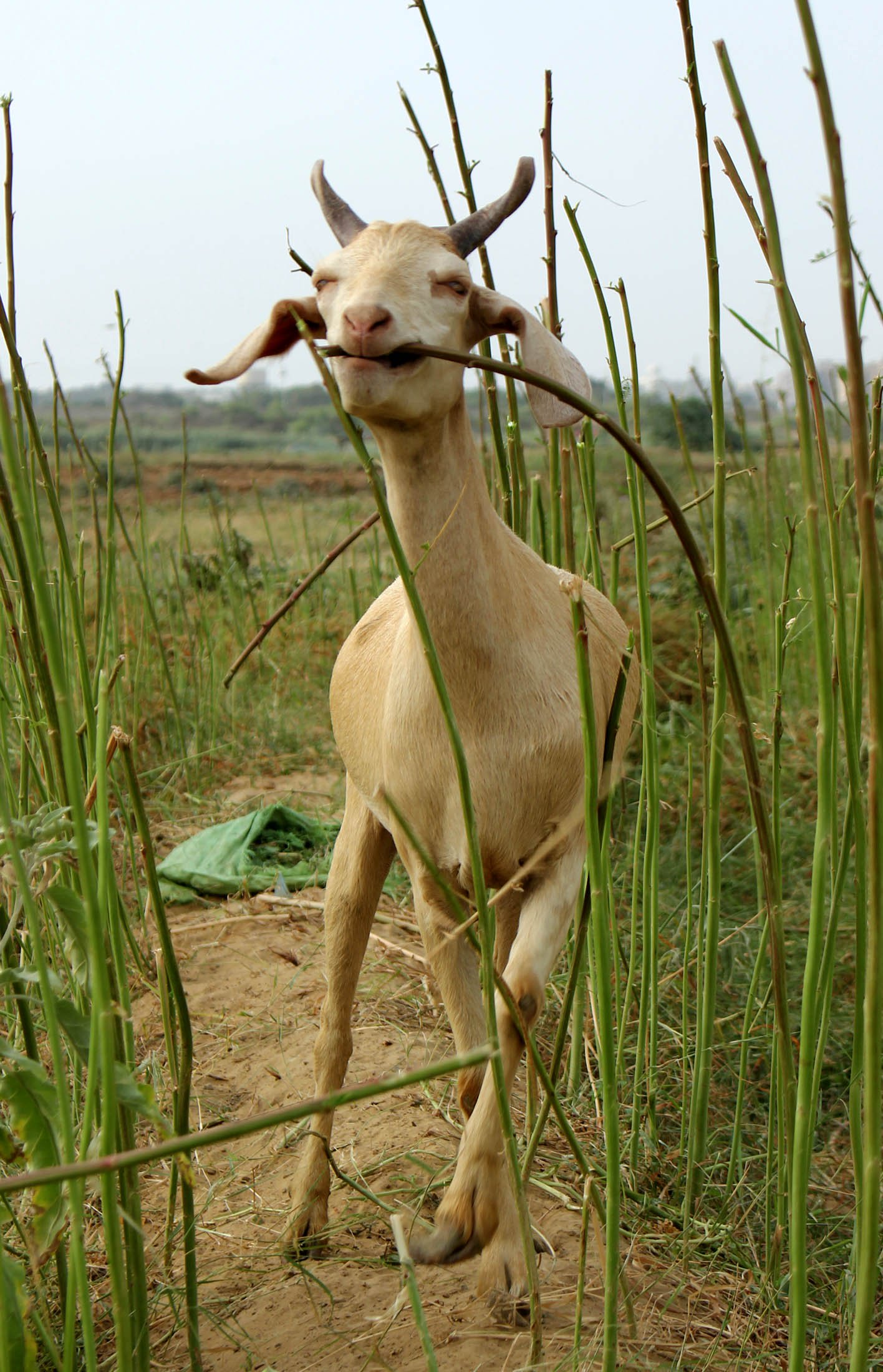Organic farm prospers on the nutrient-rich water from Malir River
Farmers use organic seeds, cow dung and natural fertilisers

PHOTO: ATHAR/EXPRESS
With neem trees surrounding the area and casting their shade, various crops growing and cattle grazing the land - the 86-acre area paints a picture of a soothing environment. The meadow is encircled by a chain of buildings far away.
 Animals at the farm. PHOTO: ATHAR/EXPRESS
Animals at the farm. PHOTO: ATHAR/EXPRESS"You want some tea?" laughed 54-year-old Shazad Hussain and asked his farmer to 'grab the goat' and milk it. The farmer then prepared tea on a woodfire. "That's how we spend our time here - with nature in a natural way," he said.
Hussain has acquired a 10-acre piece of land behind the Mehran Base on rent for irrigation pasturing. He has been growing seasonal crops in the river for the past 10 years which include organic vegetables. Organic food is the product of a farming system which avoids the use of man-made fertilisers, pesticides, growth regulators and livestock feed additives.
The pesticides and medicines, according to him, have side effects. "We sow organic seeds and use gobar [cow dung] and patto ki khad [natural fertilizer]," he said.
 Organic farmer. PHOTO: ATHAR/EXPRESS
Organic farmer. PHOTO: ATHAR/EXPRESSHussain has an experience of 23 years in the banking sector. "In 2016, I was the country head of a private bank when I quit my job to pursue what I love most," he said. His family, however, is quite sceptical about his hobby, but he believes in pursuing his dreams. Even when Hussain was working in a bank, he used to own this farm and visited it every weekend. "Now it's my full-time job," he smiled.
Inflicting losses: Farmers urged to overcome pest attacks
Sale purchase
Hussain has a Facebook page and a WhatsApp group named 'Green Karachi' through which he sells what he calls his organic crops. Currently, he is growing cauliflower, bringer and carrots on his farm. "These are three-month crops," he said, adding that just a month before Eidul Azha he planted Jantar [cow feed] and managed to earn a handsome profit.
He owns around 100 goats and as many hens. He is also rearing 10 cows and 15 sheep at his farm. "As the dawn breaks, the animals want to go out in the field," he said. "By dusk, they all come back to their shelters themselves. This is their natural process."
Snakes and Scorpions
Clad in a simple T-shirt and blue jeans, he strolled through the farm which is covered by wild grass and blue flowers. "Be careful there're snakes and scorpions here," he warned.
Hussain believes that if one is afraid of snakes and scorpions, he or she can never do farming. "It's a whole science," he said, explaining that one needs to know how to deal with the snakes and which crop to plant at what time to gain maximum profit.
 PHOTO: ATHAR/EXPRESS
PHOTO: ATHAR/EXPRESSIrrigation channel
At one end of his land is a small dam which, he claims to be 200 metres long, 100 metres wide and around 15-feet deep. "This is the natural flow of water," he said, adding that the dam stores water and doesn't allow it to go back.
When asked if it's industrial wastewater, he said that the industrial wastewater was at Korangi Creekside. "This is domestically consumed water which is very fertile," he explained. There is a pump and small water channels made of mud, through which the water is supplied to the crops.
Dr Zafar Iqbal Shams of Karachi University's Institute of Environmental Studies believes that usually in urban areas, irrigation is done through the domestic wastewater which provides nutrients to the plants. He, however, said that the presence of micro bacteria cannot be ruled out. "The industrial wastewater has metal in it, which is extremely dangerous," he said and explained that in order to bring the domestic water to use, one should install small treatment plants, which he added, were not very costly.



















COMMENTS
Comments are moderated and generally will be posted if they are on-topic and not abusive.
For more information, please see our Comments FAQ